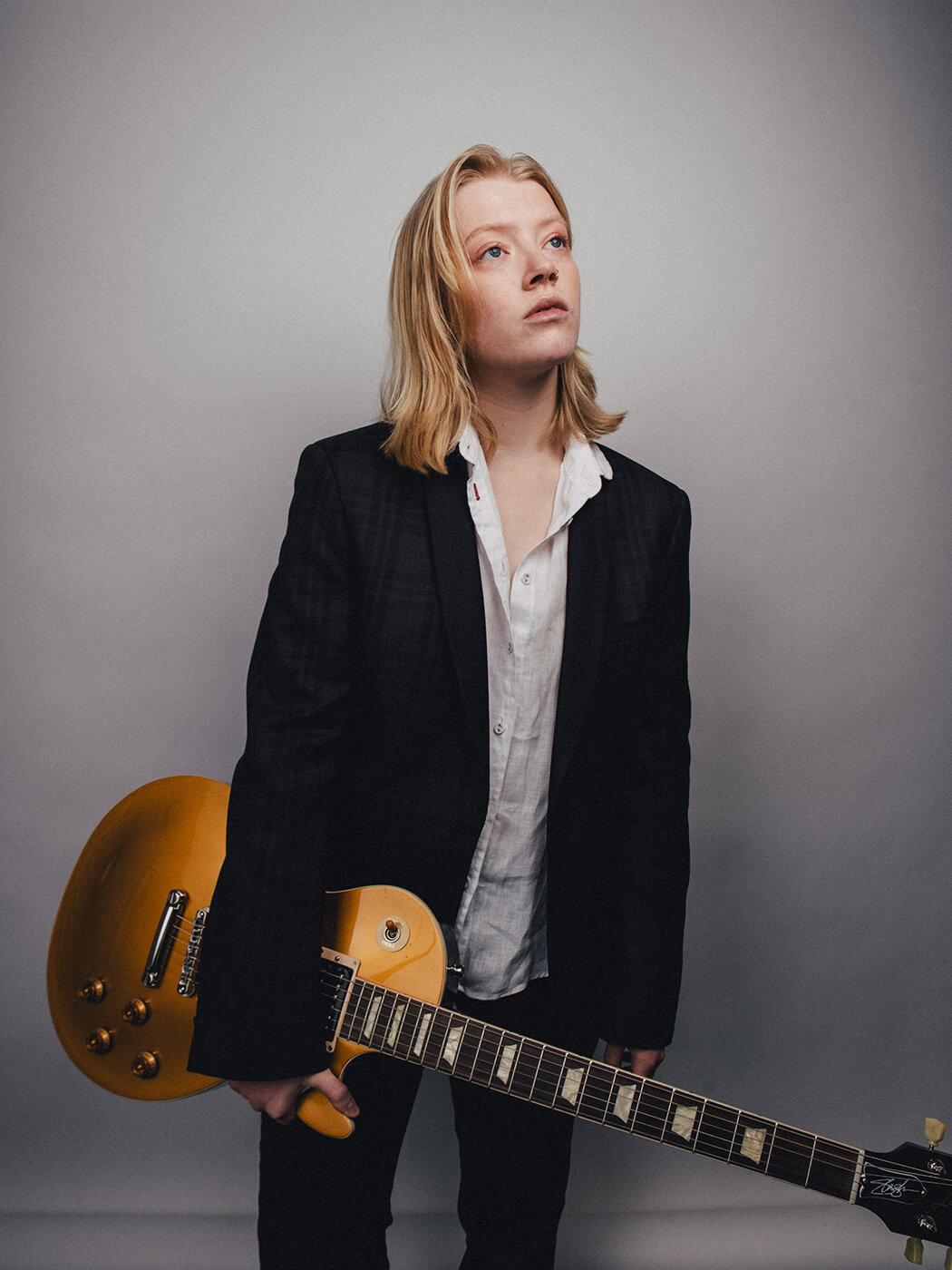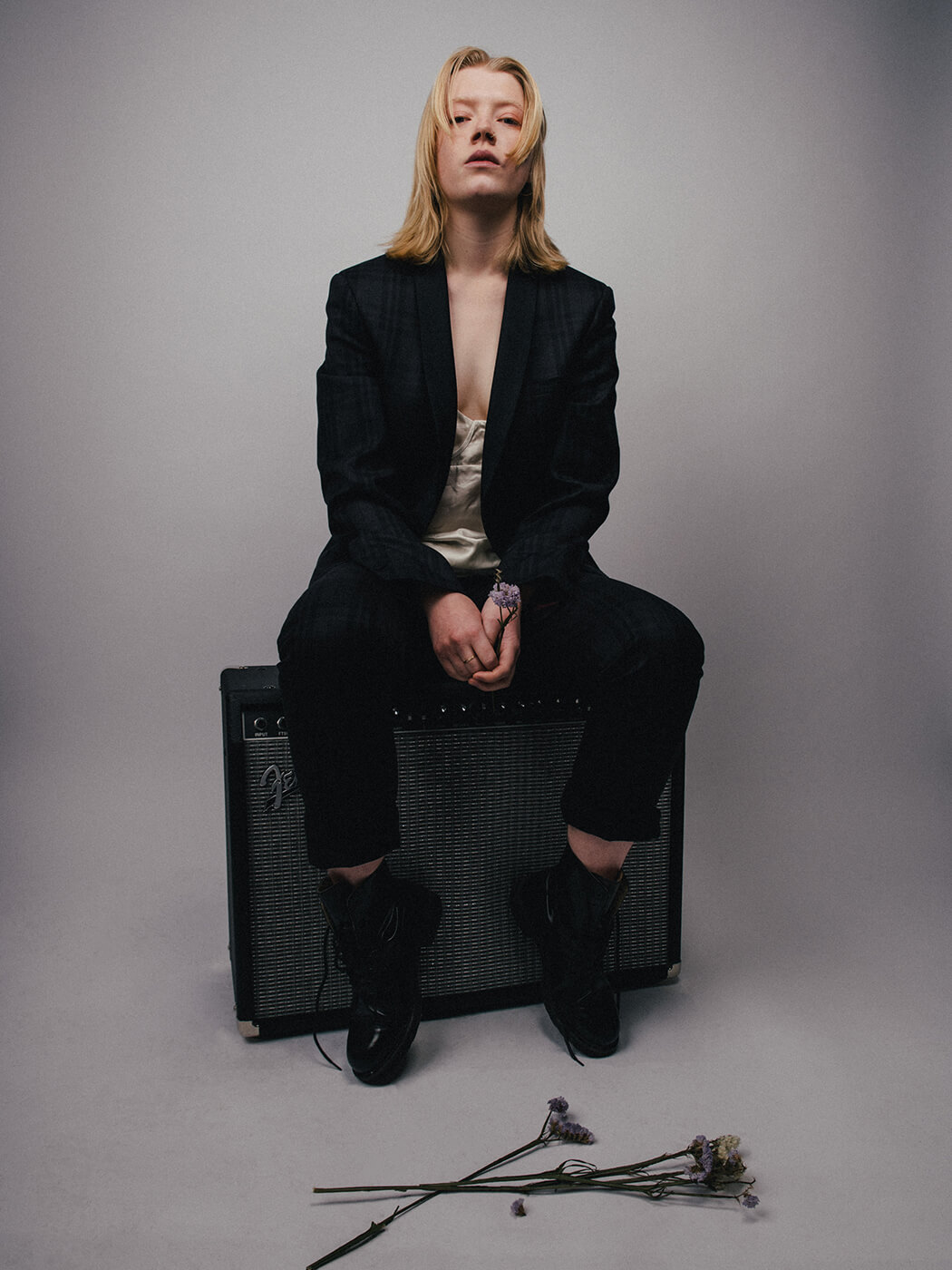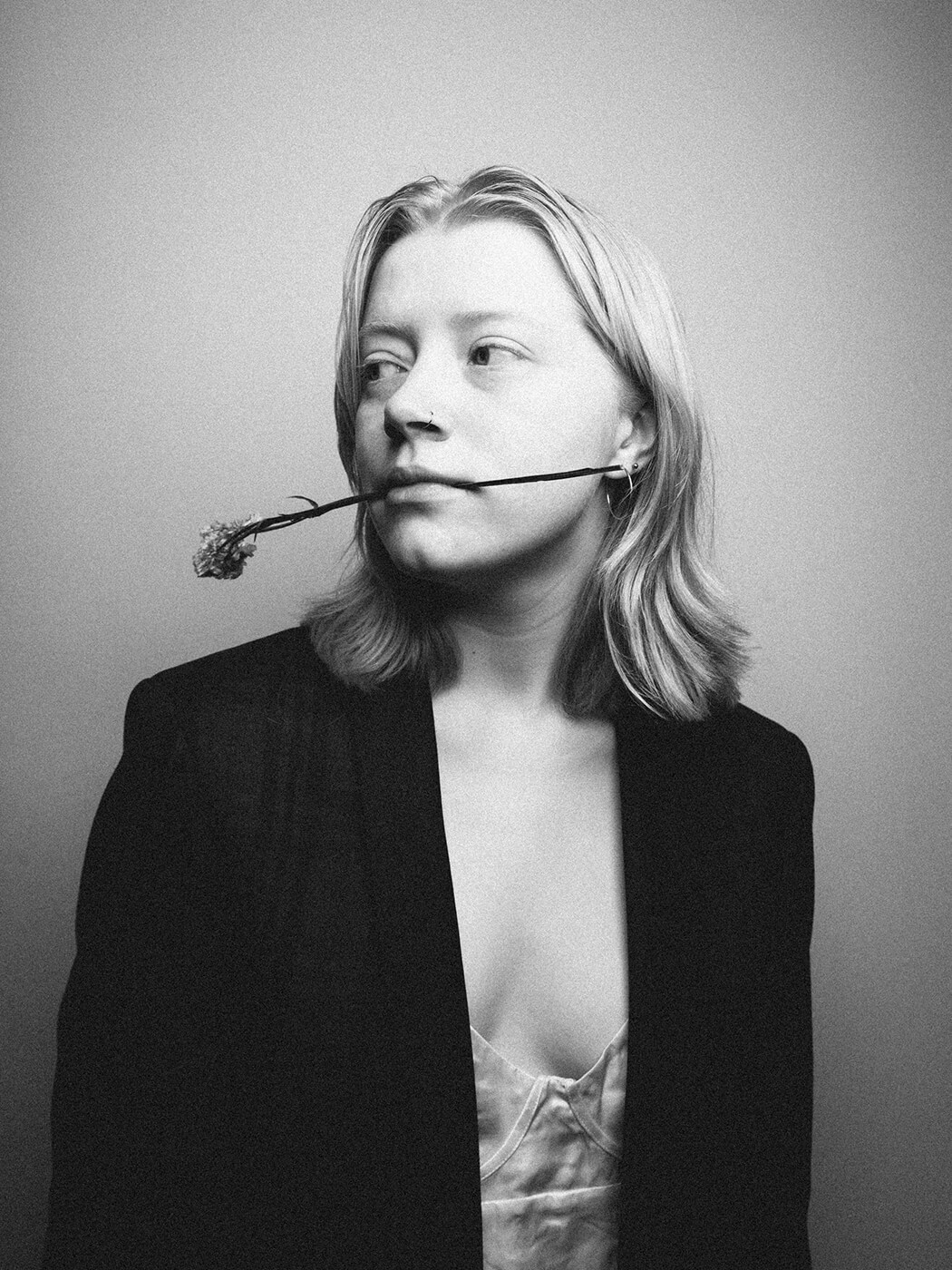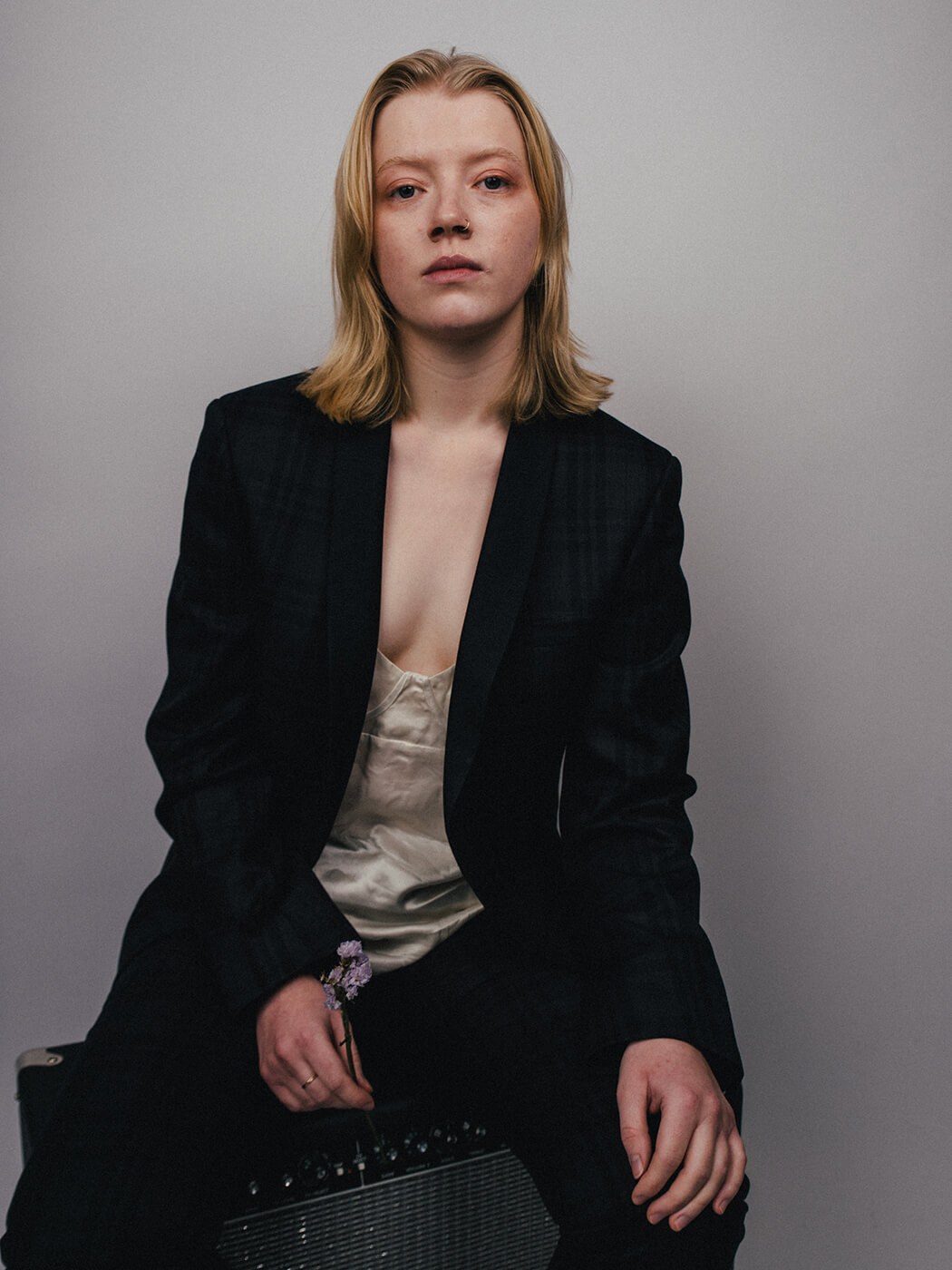Rosie Frater-Taylor is on a mission to problem the guitar music norms Guitar Contact
Speaking in regards to the new age of jazz in a swanky London resort bar with Ella Fitzgerald taking part in over the audio system does really feel awfully meta, however for guitarist Rosie Frater-Taylor, the nuance of that is inescapable.
Sometimes called a “jazz virtuoso”, Frater-Taylor appears eager to problem style expectation in latest album, Featherweight, and never be sure to the musical foundations she developed throughout her time finding out jazz on the Royal Academy of Music.
“I don’t like genres as a complete,” she explains. “I feel they kind of detract from artwork and so they don’t actually serve artists in any manner. Greater than something, they serve the individuals who promote the artwork.
“So I feel as an album, it was my aim to make one thing that fully challenged the style norm. I simply need to encourage extra artists to only make the music that’s most genuine to them,” the guitarist continues, “regardless of being advised that they need to make music that seems like X, Y or Z as a result of it’s doing nicely.”
Jazz roots
Being sure by any style may be limiting for a younger musician, particularly one who’s being labelled with phrases equivalent to a “jazz virtuoso”.
Frater-Taylor’s third album marks a stylistic shift in her discography, nodding to her love of Americana-adjacent singer-songwriters equivalent to Madison Cunningham in addition to people who straddle the strains of a number of genres equivalent to Willow Smith, or Lewis Taylor – and every little thing in between.
“I solely discuss jazz due to how I’ve learnt to be the guitarist that I’m, despite the fact that I don’t actually play jazz anymore. It’s a little bit of a political assertion as an album as I’m saying ‘I’m going to make this music that you simply’re not essentially going to know methods to categorise, however that’s okay’.

“I’m actually simply impressed by artists who mix that degree of musicality which I’m actually drawn to.”
No matter her clear have to look in the direction of her musical future, moderately than stay prior to now, she does admit that jazz is “inescapable” for her; one thing that’s all the time “rearing up from behind”, whether or not that’s merely the chord development that’s on her fingertips, or Ella Fitzgerald commandeering our dialog’s backing observe.
Frater-Taylor’s latest album affords clean jazz impressed vocals and complicated guitar strains accompanied by an actual grit heard by way of overdriven guitar solos and bass riffs, giving the heavier contact that permits her report to staddle the road between most of the types that she has clearly been impressed by.
Even by way of tracks like Give & Take, there’s an actual sense of exploration with regards to her capabilities as a guitarist, but in addition as a musician attempting to solidify her fashion.
There’s a clear admiration for the style, even when the guitarist doesn’t see it as one thing that they need to partake in for now.

“It’s undoubtedly the toughest style for a guitarist,” she says, “and I feel that’s what drew me to it. Watching somebody like Joe Go play one thing unattainable, it makes me need to learn to play one thing unattainable.
“I feel that jazz is extra accessible now as a result of it’s sort of come to the fore prior to now a long time,” she continues. “So the phrase jazz, particularly within the UK, is much less horrifying and fewer stuffy. Persons are extra open to that experimentation. They’re extra keen to offer it an opportunity.
“Whether or not you’re a fan of those individuals or not, it’s like that phrase jazz is coming into a rebirth, which might additionally imply like this concept of like a deeper palette and deeper musicianship for everybody”.
Discovering the best power
Having launched her first album at eighteen, Frater-Taylor’s relationship with the guitar has understandably shifted. As she explains, lots of this comes from her band.
“We toured my final report Bloom in a trio arrange, and so there’s a lot house for the guitar,” she says. “So I feel that made me actually hone my taking part in, as a result of if you’re performing your songs and also you’ve bought this huge crowd on large phases which have huge sound methods, you’ve bought to convey it in these conditions and fill out that house.

“My drummer Tom Potter and my bassist Dave Edwards, they carry an enormous power to the music. So I used to be having to, in the easiest way attainable, match what they have been doing. I assume in that manner I feel that’s affected my guitar lots when it comes to possibly a heavier contact and having the ability to help a complete 90-minute set.
Nevertheless, with regards to taking part in on her personal, Frater-Taylor actually appears to come back into her aspect, together with her album sprinkled with solo interludes as heard in tracks Cease Working and Maintain Weight.
With only a looping pedal, she manages to create a genre-bending soundscape, managing to impressively fill the house on her personal. To not point out her flurry of solo performances throughout the globe. “I discover it’s a really intimate expertise with an viewers,” she admits.
“You may be performing to 50, 100, 150 individuals, no matter, however it nonetheless looks like a one-on-one factor if you’re taking part in by yourself,” the guitarist continues. “And I like that lots as a result of I can actually get into the lyrics and take into consideration the lyrical content material, and the place the place of the tune is definitely coming from, equivalent to why I selected a specific chord and why I’d select to play it in that particular manner.”
“There’s much more house to do this if you’re taking part in by yourself. And I like looping shit, sort of layering up chords and stuff, which is clearly one thing that I can’t actually do with a band as a result of they don’t know the place beat one is within the loop.
“I feel that’s undoubtedly within myself, it’s like full on guitar. I can actually indulge within the guitar factor.
Is she fascinated about a totally solo album? “Sure, undoubtedly,” she exclaims. “I’m to attempt it. I feel it could sound very completely different to the music I make now as a result of the one factor I like to do is layer and overdub and create soundscapes once I’m producing music. I’ll layer up actually dissonant concord components So it could be very completely different for me, however it’s one thing I’m but to come back to”.
Dangerous guitarists depend on good gear
Turning the dialog to gear, and for Frater-Taylor it’s a simple reply as her partnership with Gibson since 2022 has resulted in fairly the love affair with the Les Paul:
“They’re actually thick, actually heat, actually darkish, you possibly can go actually darkish with it,” she explains. “So if you wish to play large, wealthy chords and sing excessive, particularly if I’m singing my solo or doubling the road, the voice and the Les Paul work actually properly collectively.
“However I did just lately purchase a Telecaster… possibly not one thing to inform them.”
Contemplating that a lot of her dwell performances have been in a trio or solo arrange, she explains that she tends to search for pedals that “add some curiosity to the sound and pad it out a bit”, equivalent to vibrato and reverb.

Whereas this album is admittedly heavier when it comes to tone, and the liberal use of overdrive in most of the tracks, Frater-Taylor does reveal that she has fairly a robust opinion with regards to using pedals.
“I feel typically I’m fairly minimal with my gear as a result of at the back of my thoughts I’m prefer it’s a check. I don’t need to sound shit if I don’t have the gear,” she explains. “If I overlook my pedals, I simply need to have the ability to play.
“I simply assume pedals may be fairly a cop-out for lots of guitarists,” Frater Taylor admits. “Dangerous guitarists depend on good gear to make them sound good.
“For me it’s all within the fingers and in your potential and the way a lot you’re in a position to hone what you’re doing. You wouldn’t go and add a pedal to a saxophone to get a superb tone”.
